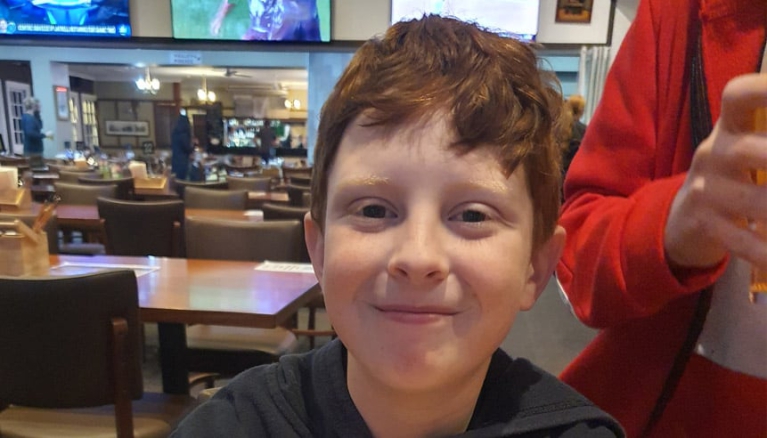
With a history of type 1 diabetes in the family there was always a possibility that Tobey would be diagnosed with the condition and become a diabetic. Through early testing and detection, 12-year-old Tobey and his family have learnt how to live with the chronic disease whilst enjoying quality of life.
Tobey’s dad was diagnosed with type 1 diabetes at the early age of eight so the family has always been vigilant and checked for any tell-tale signs that Tobey or his older brother could face a similar situation.
Type 1 diabetes is an autoimmune condition where the pancreas stops producing insulin. Insulin acts like a key and helps open the cells to allow glucose to enter to give the body energy it needs. If not managed properly it can cause serious health problems and, over time, can seriously damage the body’s organs.
When Tobey was six his mum Rebecca started him and his brother on a diabetes screening program which involved a blood test once a year to screen their blood for four markers, also known as antibodies that are linked to type 1 diabetes.
It was late 2019 when Tobey tested positive to one of the antibodies. Sometimes people who are not diagnosed with diabetes can test positive for the antibodies, so Tobey had a second test, and this time tested positive for two of the four antibodies.
“It was then we knew we were on track for Tobey to be diagnosed with type 1 diabetes, but it wasn’t confirmed yet,” Rebecca said.
One evening Tobey, who had just turned nine, had mentioned he wasn’t feeling well with an upset tummy. Rebecca thought she had noticed a few mild signs and symptoms of type 1 diabetes.
“My heart just sank. Deep down I was hoping he just had an upset tummy,” Rebecca said. “But I knew that with his increase in thirst, going to the toilet a little more often and how tired he was getting, that it was a sign.”
The diagnosis was confirmed at the Queensland Children’s Hospital the next day.
“We were in a position that we knew the signs and symptoms and we were aware of what could happen,” Rebecca said. “Tobey was quite fortunate that he never got really sick but he does have to manage his ongoing treatment.”
Treatment for type 1 diabetes includes regular, daily injections of insulin, monitoring blood sugar constantly (through a glucose reader and finger prick), counting carbohydrates, fats and proteins and keeping up a healthy lifestyle.
Rebecca said the first few needles in hospital came with tears which was heartbreaking, but with the support of his older brother and father, Tobey took his diagnosis in his stride.
“The initial diagnosis meant a lot of monitoring and time doing things like going into Tobey’s school to help him with his injections, and a lack of sleep due to the constant monitoring throughout the night.”
In April 2021 Tobey started using an Omni Pod which supplies non-stop insulin delivery through a tubeless, waterproof pump and removes the need for multiple daily injections.
“Thanks to the education we have received through Queensland Children’s Hospital, Tobey now has the confidence to manage his pump himself and he loves understanding what is going on and being in control of his condition,” Rebecca said.
Tobey keeps an active lifestyle playing basketball, tennis and going camping and swimming with the family. He also has a keen interest in everything cars and racing.
Now in high school, he has learnt to manage most elements of his condition himself, with a visit to Queensland Children’s Hospital every three months for a check-up. Tobey is enjoying the freedom to go about his day-to-day activities, thanks to an early diabetes diagnosis.